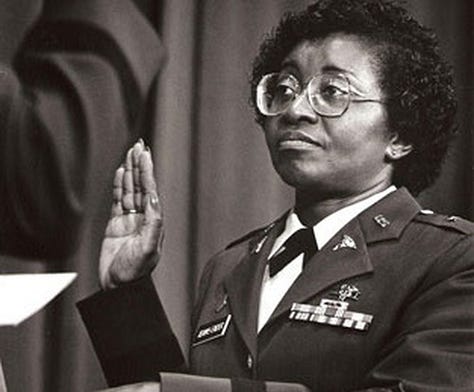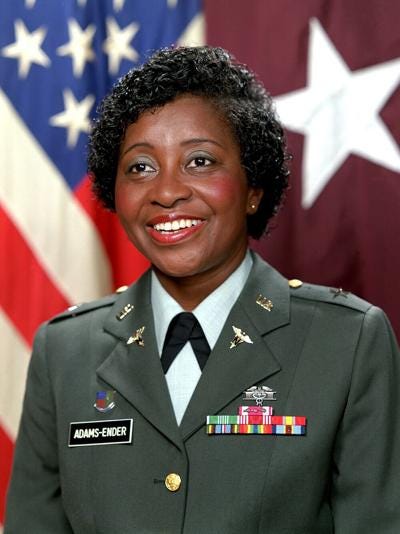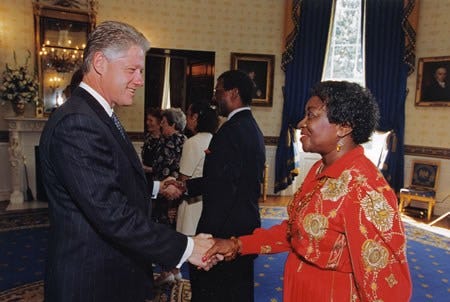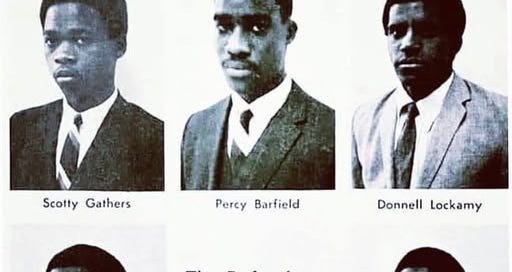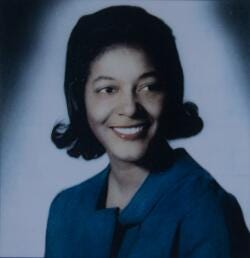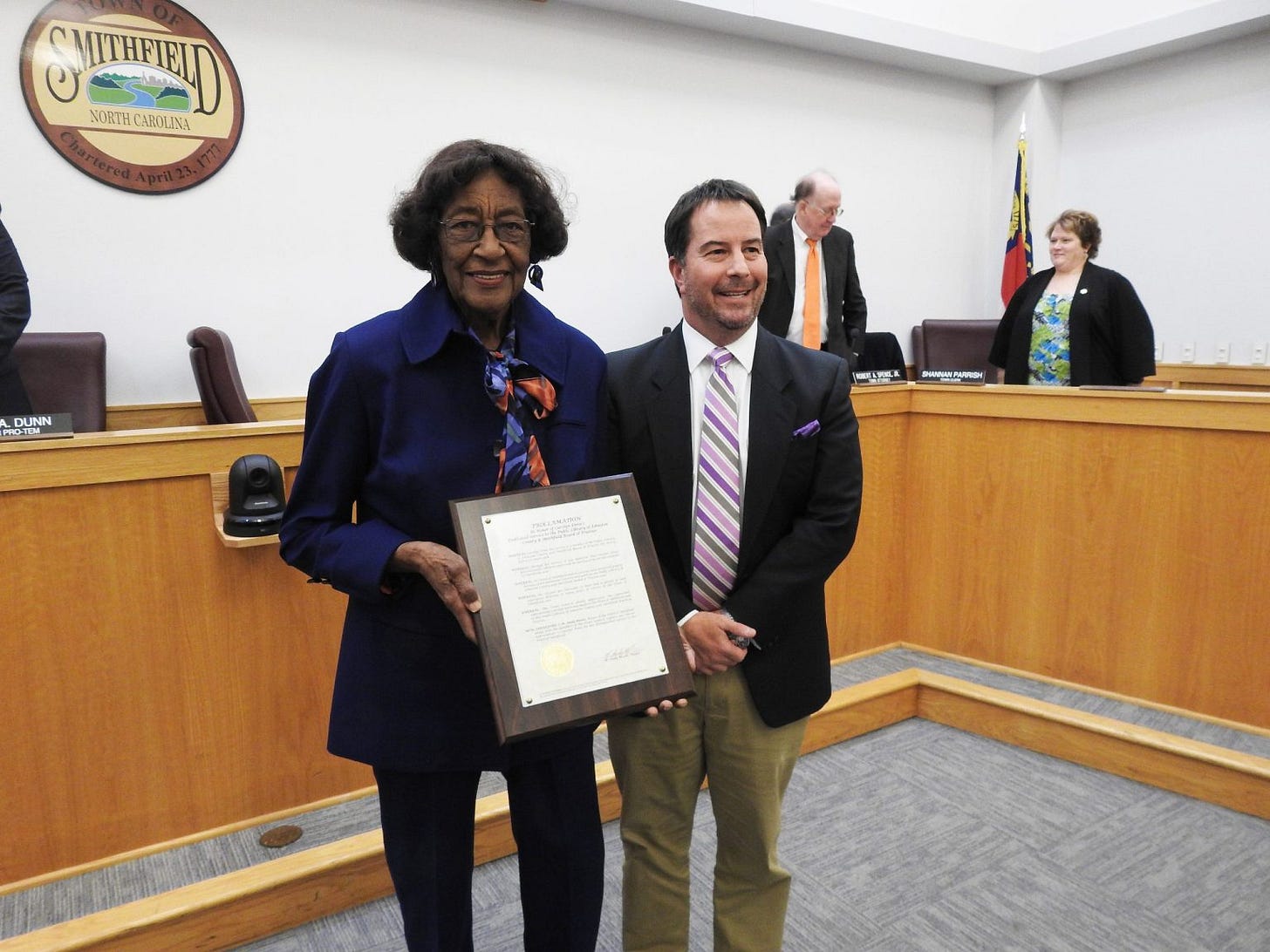Learning Out Loud: Honoring Black History in Johnston County - Part 3
We’re now into the third round of these Black history stories from Johnston County. By now, you know why this matters because these lives and legacies are our local history. This installment continues to uncover the names, struggles, and triumphs that deserve space, recognition, and remembrance.
Let’s get right to it.
𝐓𝐡𝐞 𝐁𝐞𝐧𝐬𝐨𝐧 𝟓 – 𝐓𝐡𝐞𝐲 𝐅𝐨𝐮𝐠𝐡𝐭 𝐭𝐡𝐞 𝐊𝐥𝐚𝐧, 𝐭𝐡𝐞 𝐒𝐲𝐬𝐭𝐞𝐦 𝐅𝐨𝐮𝐠𝐡𝐭 𝐁𝐚𝐜𝐤, 𝐚𝐧𝐝 𝐉𝐮𝐬𝐭𝐢𝐜𝐞 𝐒𝐭𝐢𝐥𝐥 𝐇𝐚𝐬𝐧’𝐭 𝐂𝐨𝐦𝐞
Almost 57 years ago, five young Black men from Benson, North Carolina, decided they had endured enough. The Klan had terrorized their community in the historically Black community of Sorrow Valley in Benson for as long as they could remember. They had grown up watching them ride on horseback, harassing children, and now, in the wake of Dr. Martin Luther King Jr.'s assassination, they were marching through the neighborhood with firearms, celebrating his death.
It was April 8, 1968, just four days after the assassination of Dr. Martin Luther King Jr., and for Percy Valle Barfield, Fred Lockamy, Jesse Jones, Scotty Gathers, and Leo Stewart Jr., this was the moment they chose to fight back. Their actions were a direct response to both the profound grief over Dr. King's death and the intimidation they faced from local Klansmen.
These young men were not criminals. Some were high school students or recently graduated, with aspirations for college. That night, they made a decision. Grabbing gasoline, they walked to the Klan’s klavern set it on fire with intent of running them out of Benson.
As Fred Lockamy later recalled, they barely thought about the act itself. The next morning at school, they overheard people talking about how “somebody” had tried to burn the place down. “Tried to, now,” Lockamy emphasized, because the fire barely made it past the front door, causing less than $100 in damage.
A patrolling officer saw it shortly after it started. It has not been reported who had seen them, but it was very convenient that a police officer just so happened to be near the Klan meeting place. Days later, they were arrested and taken to the police station. Fear weighed on them, but they returned to school, where something unexpected happened. Their peers, and even some teachers, treated them like heroes that they are.
Their trial took place at the Johnston County Courthouse in Smithfield, a place where justice has never truly been served for Black people. The courtroom filled with supporters. Teachers and school officials testified on their behalf. Even their defense attorney was confident they would receive probation. They had no prior records, and the prosecution was not pushing for harsh punishment.
Then Judge William Y. Bickett, son of a former Governor of North Carolina, looked at the young men and asked if they had anything to say.
Lockamy, just 16 years old, stood and spoke. “Your honor, I realize what we did was wrong, but I just wanted to say that if you see your way to let us go now, I promise you that we’ll never do it again.” The judge smirked. “You look like an intelligent young man, Mr. Lockamy. But if I let you go, do you think these folks in Johnston County would vote for me again?” That was all that mattered. Not fairness. Not justice. Only white approval.
Silence fell over the courtroom. Then came the sentences from the judge, 12 years of hard labor. Families cried out in disbelief. The judge banged his gavel calling order, and the young men were shackled then immediately taken away. Judge William Y. Bickett knew exactly what he was doing.
He later admitted in an interview that he may have been too harsh, but he wanted to “send a message” to prevent more Black defiance. That message was clear, if you are Black in Johnston County, the law is a tool of oppression, not justice. Even before then Johnston County has spent over a century hoping Black men remain trapped, through chain gangs, the death penalty, or relentless parole supervision.
The severity of their punishment made national headlines. Newsweek covered the case, and it even aired on NBC’s hit show Laugh-In. The NAACP and a newly formed biracial coalition, the Committee for Equal Justice, took up their cause.
This is a crucial point that gets lost in the narrative of North Carolina’s so called “moderate” progressivism. The real change, the actual shift toward justice has always come from your everyday multi-racial working class North Carolinians organizing, showing up, and making demands.
While progressive groups often make noise, hold meetings, and push out statements, they aren’t always the ones physically occupying spaces, disrupting business as usual, or forcing the hands of lawmakers.
Thanks to the relentless nature of these community organizers In August 1969, national attention forced Governor Bob Scott to commute their sentences in 1969, but even then, they were placed under strict parole conditions and constantly harassed.
The punishment, however, did not end there. Four of the five enrolled at Shaw University, but parole officers harassed them constantly. Lockamy was arrested every time he returned home for school breaks, until he eventually dropped out and joined the military. Their felony convictions followed them, blocking opportunities at every turn.
This isn’t just history. Johnston County has always made room for white supremacy. In 1988, the KKK openly marched in Benson. By the early 2000s, they were still operating there until members were caught on weapons charges. The only thing that has changed now in 2025 is how racism disguises itself.
The Benson 5 were supposed to serve as an example, to keep other Black residents silent and afraid. Instead, their case is a reminder that racism in Johnston County is not some distant past. It is woven into the fabric of its legal system, still playing out in courtrooms today.
Three members of the Benson 5, Leo Stewart Jr., Percy Valle Barfield, and Fred Lockamy are still alive today. Sadly Jesse Jones and Scotty Gathers passed away without ever seeing actual justice. Clemency was not enough. These men deserve full and unconditional pardons.
The Benson 5 should never have been convicted. Their futures should never have been taken away. Yet North Carolina has never fully exonerated them. How much longer will the state refuse to acknowledge what was done to them? How much longer will Johnston County ignore the racism ingrained in its legal system?
Three of these men are still here, waiting to see justice in their lifetimes. For Jesse Jones and Scotty Gathers, it is already too late. The question now is whether Johnston County will finally make this right before another name is added to the list.
A documentary titled The Benson Five is currently in production, aiming to shed light on the 1968 incident in Benson, North Carolina. The film delves into the context of the arson and its lasting impact on the community, exploring themes of Black resistance, the Black Power movement, the Klan's presence in North Carolina, and disparities in the criminal justice system.
Directed by Sarah Nixon and Dakota Stokes, the project is supported by the Southern Documentary Fund, a nonprofit organization dedicated to nurturing documentary projects that illuminate Southern stories and issues.
𝐃𝐫. 𝐂𝐚𝐫𝐨𝐥𝐲𝐧 𝐄𝐧𝐧𝐢𝐬: 𝐀 𝐋𝐞𝐠𝐚𝐜𝐲 𝐨𝐟 𝐋𝐢𝐠𝐡𝐭, 𝐋𝐞𝐚𝐝𝐞𝐫𝐬𝐡𝐢𝐩, 𝐚𝐧𝐝 𝐋𝐨𝐯𝐞
𝐂𝐞𝐥𝐞𝐛𝐫𝐚𝐭𝐢𝐧𝐠 𝐚 𝐋𝐢𝐟𝐞 𝐨𝐟 𝐒𝐞𝐫𝐯𝐢𝐜𝐞, 𝐄𝐝𝐮𝐜𝐚𝐭𝐢𝐨𝐧, 𝐚𝐧𝐝 𝐂𝐨𝐦𝐦𝐮𝐧𝐢𝐭𝐲 𝐢𝐧 𝐉𝐨𝐡𝐧𝐬𝐭𝐨𝐧 𝐂𝐨𝐮𝐧𝐭𝐲
I want to take a moment to celebrate a living legend whose life’s work has been a gift to Johnston County. Someone who has positively impacted thousands of people and multiple generations.
Dr. Carolyn Grantham Ennis. After days of exploring our county's complex and painful history, today is a day for joy. We don’t ignore the struggles she faced, but we choose to highlight the light she has brought and the legacy she has built that continues to inspire us all.
Dr. Carolyn Ennis is the definition of a life well lived in service to others. An educator, a leader, a mentor, and a volunteer, she has spent over 50 years transforming lives through education and community service. Her journey began right here in Johnston County, where she was a proud product of our Johnston County segregated schools before earning degrees from Shaw University, New York University, and Duke University. In 2000, Shaw University recognized her impact with an honorary Doctorate of Humane Letters.
Her career in education spans decades, from teaching at Richard B. Harrison High School to helping integrate Smithfield High School in 1967, where she was selected for her strength and leadership during a tense era of change. She didn’t just teach lessons from books; she taught lessons from the heart and lessons about dignity, respect, and resilience.
When Smithfield-Selma High opened its doors in 1969, she was there to help guide students through a new chapter in Johnston County history. For 35 years, she served as Supervisor of Instruction, guiding teachers across the county and enriching classrooms with music, art, and culture.
Even after retiring in 2013, she continued as Special Assistant to the Superintendent—working without pay—because, in her words, “What I receive in return for my service is more valuable than money.”
But Dr. Ennis’ impact reaches far beyond the classroom. Her passion for the arts led her to the Johnston County Arts Council, where she championed programs like the North Carolina Symphony’s visits for fifth graders and brought the Shaw University Chorus to Smithfield each February for Black History Month. Year after year, she wrote and directed dramatic dialogues for the event, using her creativity to educate and inspire. She even funded these programs herself, proving that her love for the arts and education was never about recognition, it was about community.
Her church, First Missionary Baptist, has been another cornerstone of her life. As a trustee and newsletter editor, she has shared history and hope. She is known for recognizing unsung heroes, kitchen workers, ushers, and caregivers, through an annual celebration, paying for their awards from her own pocket. When the church celebrated its 150th anniversary in 2016, Dr. Ennis orchestrated a grand event and wrote the original play "Glory" for the occasion, calling it the most demanding and rewarding project of her life.
Her advocacy for youth has always been tireless. For over 30 years, she has organized the African American Senior Superlatives and Valedictorians recognition ceremony, celebrating hundreds of students annually. She has volunteered and reached thousands of peoples lives here in Johnston County.
Dr. Ennis is also a force in philanthropy. Through the Carolyn Grantham Ennis Scholarship Endowment with the North Carolina Community Foundation, she has opened doors for students to attend Shaw University, encouraging those who show vision, valor, versatility, and vivacity. In 2018, she received the Frances Finch Hobart Award for Volunteer Community Service, designating her prize money to restore Johnston Central High School's gymnasium in honor of her late husband, Coach Reginald Ennis.
Her list of accolades is long: Smithfield-Selma Chamber Citizen of the Year, Athena Award Winner, Hall of Fame Inductee at Shaw University, Life Member of the Smithfield-Selma Chamber, and Grand Marshal of the 2024 Smithfield Christmas Parade. But for Dr. Ennis, the greatest reward is the lives she has touched.
In her own words, “What is my motive?” has always been the question that guides her service. She answered that question beautifully in a poem she wrote in 1973:
"My MOTIVE must be based on honest, sincere love—to help my fellowman, to serve God above."
Today, we honor not only her service but her heart. Carolyn Ennis reminds us that history is not just about what we endure but also about who we uplift. Her story is not just Black history; it is Johnston County history. And because of her, it is a history filled with hope and light.
𝐇𝐨𝐧𝐨𝐫𝐢𝐧𝐠 𝐏𝐅𝐂 𝐍𝐞𝐚𝐥 𝐀𝐥𝐛𝐞𝐫𝐭 𝐃𝐞𝐧𝐧𝐢𝐧𝐠 – 𝐀𝐧 𝐀𝐦𝐞𝐫𝐢𝐜𝐚𝐧 𝐚𝐧𝐝 𝐉𝐨𝐡𝐧𝐬𝐭𝐨𝐧 𝐂𝐨𝐮𝐧𝐭𝐲 𝐇𝐞𝐫𝐨
I want to honor PFC Neal Albert Denning, a native of Johnston County, whose bravery in Vietnam stands as a testament to duty and sacrifice. His story reminds us that true heroes rarely seek recognition, they earn it through selfless action.
Neal, born on February 18, 1947, was known in his hometown for his strong character. In high school, he took on the responsibility of driving a school bus, a job many high school students in Johnston county carried at the time. With dreams of attending college, he enlisted in the U.S. Marine Corps, joining the legendary 3rd Marine Division, 1st Battalion, 9th Marines, Bravo Company, AKA The Walking Dead, renowned for their resilience and sacrifices.
On May 12, 1966, Neal became part of what Marines call the “Ghost Patrol” or “Lost Patrol”, a 14-man unit sent on a reconnaissance mission near the village of An Hoa in Quang Nam Province, South Vietnam. The mission, intended to gather intelligence, quickly turned into a nightmare. The patrol unknowingly advanced into an ambush laid by hundreds of Viet Cong soldiers, who allowed the Marines to move deep into the kill zone before opening fire from all directions. Caught in a crossfire, with enemy forces closing in, the Marines fought fiercely. Neal, though gravely wounded, directed artillery fire with precision to protect his comrades until he could no longer fight.
This battle became one of the most significant losses for the 9th Marines, known as The Walking Dead for their harrowing casualty rates. The destruction of the patrol sent shockwaves through Marine leadership, prompting immediate tactical reassessments. The bravery of these men is still honored today in Marine training as a lesson in courage, sacrifice, and the harsh realities of guerrilla warfare.
Neal’s sacrifice earned him the Bronze Star and Purple Heart, awarded posthumously. His name is inscribed on the Vietnam Veterans Memorial Wall (Panel 07E, Line 52) and honored at the North Carolina Vietnam Veterans Memorial, a place where many come to reflect on the cost of freedom.
The patrol’s story is not just a chapter in Vietnam War history, it is a cornerstone of Marine Corps legacy. Neal Albert Denning’s heroism stands as a powerful reminder that the fight for freedom often demands the ultimate price. His memory lives on as not only Black history, Johnston County history but as American history, shaping the narrative of valor and sacrifice.
Rest in power, PFC Neal Albert Denning. Your community remembers you. Your country honors you, and we will never forget you.
Visit his tribute here: https://www.virtualwall.org/dd/DenningNA01a.htm
Also in remembrance here:
https://www.vvmf.org/Wall-of-Faces/12949/NEAL-A-DENNING/
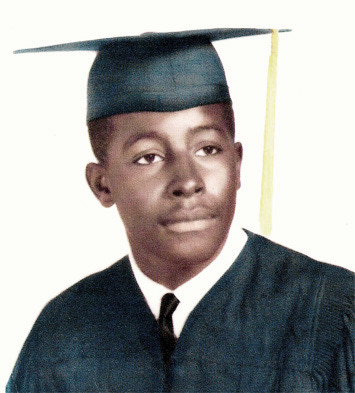
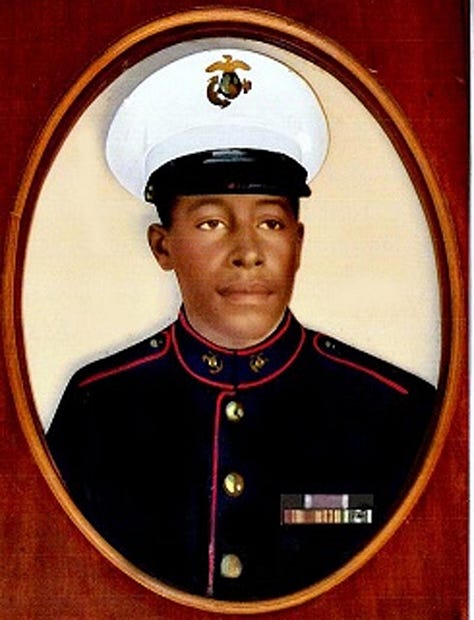

𝐅𝐫𝐨𝐦 𝐉𝐨𝐂𝐨 𝐭𝐨 𝐇𝐨𝐥𝐥𝐲𝐰𝐨𝐨𝐝: 𝐓𝐡𝐞 𝐈𝐧𝐬𝐩𝐢𝐫𝐢𝐧𝐠 𝐉𝐨𝐮𝐫𝐧𝐞𝐲 𝐨𝐟 𝐂𝐚𝐬𝐬𝐚𝐧𝐝𝐫𝐚 𝐂𝐫𝐞𝐞𝐜𝐡
Next I shine a deserving spotlight on a remarkable talent from the Town of Clayton, Cassandra Creech. Her journey from Clayton to the bright lights of television and film is a testament to perseverance, passion, and the power of dreams. Growing up in rural Johnston County, Cassandra’s ambition to become an actress was sparked early, sitting in her granddaddy’s farmhouse, captivated by Cicely Tyson’s unforgettable performance in The Autobiography of Miss Jane Pittman. That moment planted a seed that would grow into a thriving career, fueled by her determination and nurtured by the supportive community of Clayton.
At Clayton High School, Cassandra made history as the first Black woman to be crowned Miss Clayton High in 1987. She thrived academically and artistically, participating in local pageants, choir, and dance classes that allowed her to express herself and develop her talents. Everyone Cassandra knew she told she was going to be on TV one day. Her teachers and mentors in Johnston County recognized her potential and encouraged her every step of the way.
Her academic journey continued at the University of North Carolina School of the Arts, where she trained with some of the best in the industry, including studying alongside Jada Pinkett Smith. Cassandra’s pursuit of excellence took her across the Atlantic to the British Academy of Dramatic Arts at Oxford, where she embraced the challenge of refining her craft.
Cassandra’s acting career spans decades, with standout performances including Another World (1994) as Dana Kramer, As the World Turns (1998-2001) as Denise Maynard, Third Watch (2002-2003) as Joy, CSI: Miami (2005) as Officer, and Days of Our Lives (2010, 2018) as Keisha and Diane. Her Emmy-nominated portrayal of Dr. Grace Buckingham on The Bold and the Beautiful (2022, 2024) remains a highlight. She also appeared in films like Disappearing Acts (2000) opposite Wesley Snipes and I’m Through with White Girls (2007).
Cassandra’s story is one of relentless hard work and unwavering belief in her dreams. She credits her family, especially her mother, for instilling resilience and supporting her journey. Her love for animals, dedication to charitable work, and passion for the arts reflect the compassionate and driven person she is.
For young dreamers in Johnston County, Cassandra’s journey is a shining example of hope and inspiration. She reminds us that no matter where you start, your dreams are valid, and with hard work, you can achieve greatness. Her legacy is not only in her impressive body of work but also in the inspiration she provides, proving that even from a small town, you can reach extraordinary heights. Cassandra Creech embodies the spirit of perseverance, and her story encourages us all to pursue our passions with heart and determination.
She proves that where you start doesn’t define where you can go. From the quiet corners of a small town to the bustling sets of Hollywood, her journey is a testament to the boundless possibilities that come with hard work, passion, and a dream that refuses to fade.

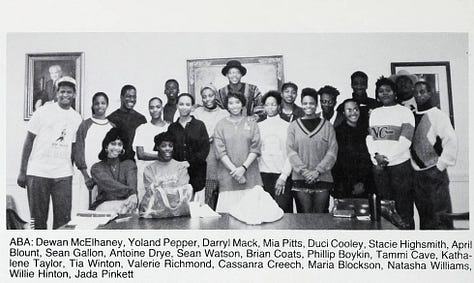

𝐇𝐨𝐧𝐨𝐫𝐢𝐧𝐠 𝐁𝐥𝐚𝐜𝐤 𝐇𝐢𝐬𝐭𝐨𝐫𝐲 𝐢𝐧 𝐉𝐨𝐡𝐧𝐬𝐭𝐨𝐧 𝐂𝐨𝐮𝐧𝐭𝐲: 𝐁𝐫𝐢𝐠𝐚𝐝𝐢𝐞𝐫 𝐆𝐞𝐧𝐞𝐫𝐚𝐥 𝐂𝐥𝐚𝐫𝐚 𝐀𝐝𝐚𝐦𝐬-𝐄𝐧𝐝𝐞𝐫
Clara Adams-Ender’s remarkable journey from a sharecropper’s daughter in rural Johnston County to a U.S. Army Brigadier General is a testament to resilience, brilliance, and unshakable determination.
Born on July 11, 1939, in Willow Spring, North Carolina, where the borders of Johnston and Wake counties intertwine, Clara’s childhood was marked by grueling labor in the tobacco fields where every dawn brought hard labor, and every dusk carried dreams of a better future.
Clara’s journey through segregated schools began with a 20-mile bus ride to school in Fuquay while white kids only had a 5 mile drive to school. That bus ride was wonderful to her though because it meant less time working in the field.
Even before starting first grade, her sister Bettie had taught her to read at a fifth-grade level, leading to her skipping multiple grades.
Still at that time she faced an education system that demanded Black students work twice as hard for half the recognition. Despite all her obstacles, she excelled, graduating at 16 as second in her class.
Despite the systemic racism of the era, she found solace in education and inspiration in stories of strong Black women like the lady judge she read about in Ebony magazine, igniting her ambition to succeed.
Her memoir, My Rise to the Stars: How a Sharecropper’s Daughter Became an Army General, vividly recounts her childhood struggles, including walking barefoot through fields, being chastised for her tomboyish nature, and the moment her mother insisted she start wearing shoes and acting like a young lady. Clara’s early years were shaped by discipline, hard work, and an unyielding spirit, all of which prepared her for the rigorous path ahead.
This drive propelled her to North Carolina A&T State University. While attending North Carolina A&T State University, Clara became a pivotal figure in the Greensboro sit ins of 1960. Joining fellow students, she sat at the segregated Woolworth’s lunch counter, facing hostility and threats. Reflecting on this, she said, “We were determined to break down barriers, no matter the cost. Our silence spoke louder than words, and our resolve was unshakable.” This peaceful protest was instrumental in the civil rights movement, leading to desegregation across the South.
To finance her nursing education at A&T she enlisted in the Army Nurse Corps, embarking on a groundbreaking military career. She became the first woman and registered nurse to earn the Expert Field Medical Badge in 1967, a rigorous achievement symbolizing excellence under combat conditions. Her entire career she shattered glass ceilings. She was the first African-American nurse to earn a Master’s in Military Art and Science, the first to graduate from the Army War College, and the first nurse to command Fort Belvoir.
Clara defied outdated norms, famously challenging the rule that nurses must stand when doctors entered the room, a change that symbolized her broader fight against systemic inequality. She once said, “I realized that tradition shouldn’t stand in the way of efficiency. Nurses were there to save lives, not to serve egos.” Her refusal to conform led to a change that improved medical care.
As Chief of the Army Nurse Corps (1987-1991), she oversaw 22,000 nurses worldwide, championed fair wages, established the AMEDD Enlisted Commissioning Program, and fought for higher nursing standards. Her service during Operations Just Cause and Desert Storm showcased her unyielding resolve. Her accolades are countless: Distinguished Service Medal with Oak Leaf Cluster, Legion of Merit, Meritorious Service Medal with three Oak Leaf Clusters, Army Commendation Medal, Roy Wilkins Meritorious Service Award, Gertrude E. Rush Award, and induction into the Army Women’s Hall of Fame in 2019.
She served globally, from Korea to Germany, and stateside at prestigious institutions like Walter Reed. She was also named one of Working Woman magazine’s 350 Women Who Changed the World in 1996, Clara’s legacy transcended far beyond her military service.
Even after retiring in 1993, Clara has continued serving by starting CAPE Associates, mentoring young leaders, and volunteering as a Nurse during the COVID-19 pandemic at age 81. Clara Adams-Ender’s commitment to education continues through the Clara Adams-Ender Scholarship, awarded to students with financial need who demonstrate leadership, perseverance, and a drive for excellence, reflecting the values she championed throughout her life.
She also became an outspoken advocate for LGBTQ+ inclusion in the military, pushing for transgender soldiers to serve openly with dignity and respect. Adams-Ender recognized that true service meant embracing diversity, and her efforts laid the groundwork for greater inclusivity within the armed forces.
Her book is a must read, it is a candid and inspiring account of her journey from rural North Carolina to the highest ranks of the U.S. Army. Adams-Ender shares personal stories of overcoming poverty, segregation, and gender bias with wit and wisdom. The book highlights in detail the pivotal moments of her life. It serves not only as a historical account but also as a motivational guide, encouraging readers to pursue their dreams despite adversity.
Her story is not just one of triumph over adversity though. It is a powerful reminder that from humble beginnings come the greatest legacies. Clara Adams-Ender embodies excellence, proving that dreams, when pursued with determination, can indeed reach the stars.
